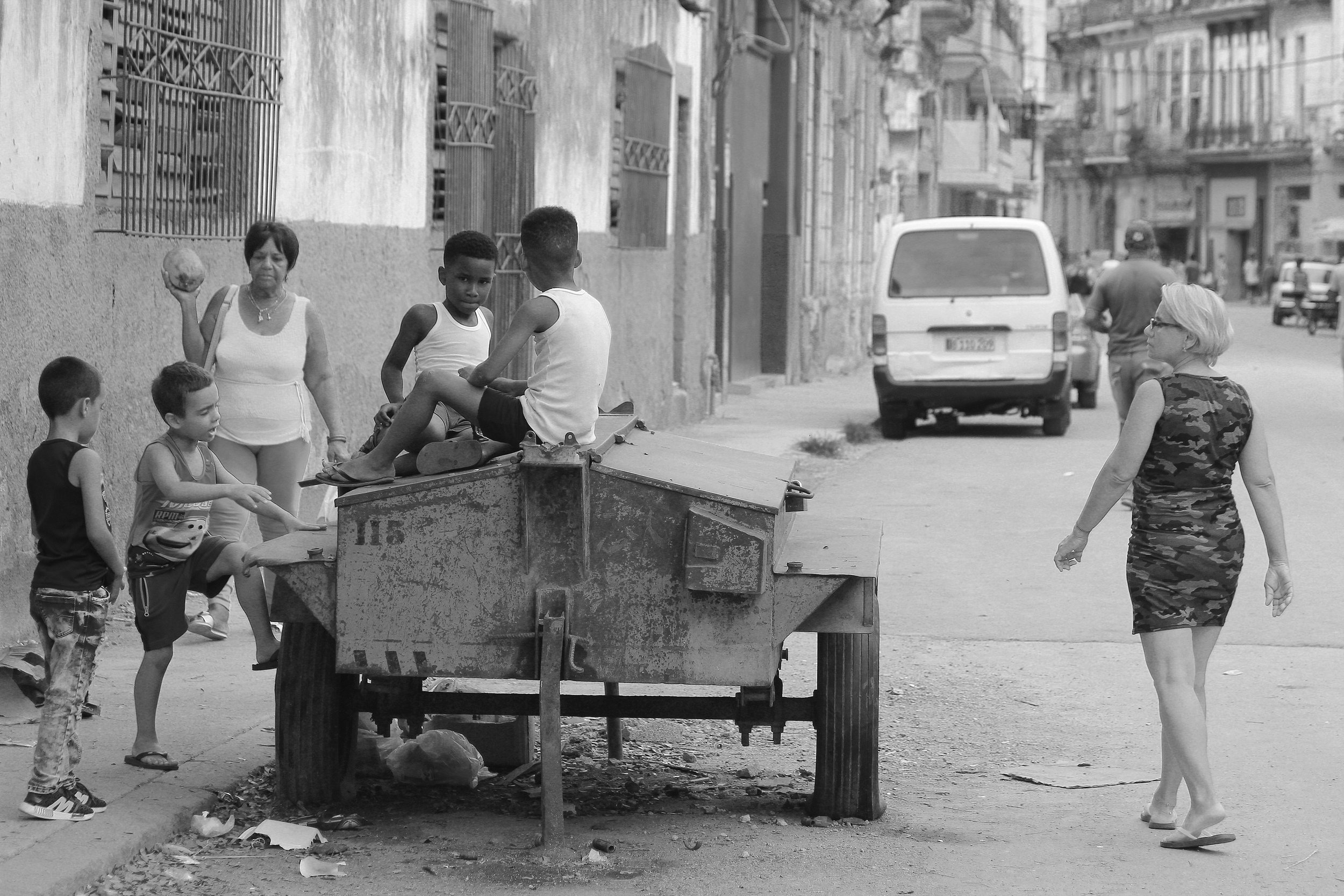Images of Suffering: Ethical Dilemma or Moral Duty?
As photographers, we are often presented with an ethical dilemma when photographing and documenting areas where people suffer either due to conflict or due to poor government. Yet, I have said before that when we see suffering it is our duty to document it… and I will continue to believe so.
After running into a lot of videos of Americans traveling to Cuba and documenting the struggles of the Cuban people, I had a mixture of emotions. On one hand, I was sad and upset about the harsh reality that people live in Cuba—not that I didn’t know about it, as I still have family and friends in Cuba. On the other hand, I felt energized and with purpose.
Dirty streets and very little to do. That’s the harsh reality many Cuban kids used to live when I was still there. Now it is much worse.|Credit: Reynaldo Cruz Diaz
The hardships of everyday life on the island are too evident and too poignant. One only needs to go online and see the many denouncing pictures and videos that are constantly sent to different alternative media and Cuban-American influencers. The Cuba I left in 2021 was a shell of the Cuba I used to roam camera-in-hand before Covid-19 hit. The Cuba that I see now in those pictures and videos—which is the same my family and friends endure on a daily basis—is a mere shadow of what I left over four years ago.
Social media and citizen journalism have become alternatives to the Communist-run media, which only focuses on praising the government and its “leaders” while blaming the “cruel and genocidal blockade” (their way to refer to the US embargo). While the images may sometimes be too graphic and even labeled as “insensitive”, one must remember that right now many of the people who document those moments lack the journalistic training or experience to put ethics above the disjunctive of shedding light to a concerning issue or going viral.
The difference between regular people and influencer-wannabes “vulturing” over sensitive aspects of human life, and lens professionals taking massive risks (from their freedoms to their very lives, depending on where they are) to expose issues is not too big. Both manage to bring attention to concerning problems that affect people. Both serve a purpose to communicate, amid a mainstream media that has become less neutral and more polarized everywhere in the world.
However, when it comes to what moves them to do that reporting, the contrast becomes clear as water. One will just do it as part of their attempt to fight for social justice the best way they can, whereas the other will just look for a personal gain, either by gaining some social media traction and attention, or even by getting paid for their content.
What I find fascinating is how easily both roles can be interchangeable. A photographer can become so greedy and so self-absorbed that may even hope for something really tragic and bad to unfold before his/her eyes so they can get that Pulitzer-worthy image. At the same time, someone who started as a basic scavenger can grow the sensibility to understand the importance of capturing images with the intention of helping people and not for their own benefit.
There is a huge difference between those photographers who have been killed in disasters, wars and conflict, and those who show up after the latest tragedy to capture images of people in situations of humiliation and vulnerability. In other words, none of the paparazzi related to the death of Lady Diana by harassing her and even taking pictures of her dead body afterwards inspire the same any respect. On the other hand someone like Bill Biggart (who died in the line of duty, documenting the 9/11 events at the World Trade Center), Dan Eldon (killed by a mob in Mogadishu while covering the Somalian conflict in 1993), or even the great Robert Capa (killed in 1954 while documenting the First Indochina War).
I believe we should all aim to be more like Biggart, Eldon, Capa and many others, but I also understand that it requires a lot of character and courage. More importantly, the compassion you have for your subjects while documenting life is what makes the difference. If you connect with them, either personally or through empathy, your photos will have more meaning. There was not a time that seeing someone struggling didn’t break my heart as I captured them.
Maybe, that didn’t make me a better photographer, but I want to believe it made me a better person.


